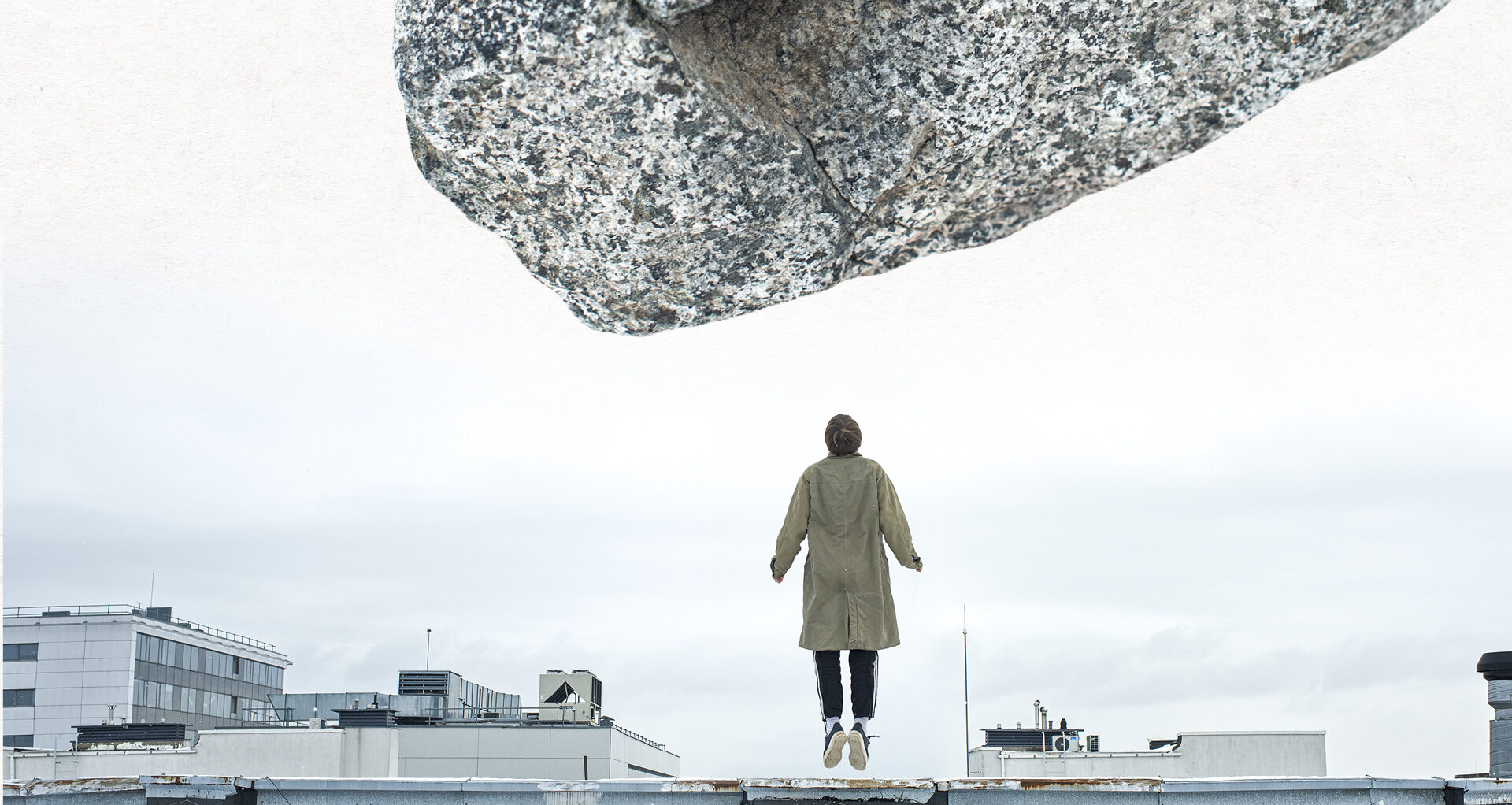Director Ignas Jonynas made his debut at the Jaunimo Teatras three decades ago. But then he turned to film making and became one of the most interesting contemporary Lithuanian film creators. In the breaks between the making of his new film, I. Jonynas returned to the Jaunimo Teatras. For the new production, he chose the play The Son by the contemporary French playwright Florian Zeller. This is the last part of the trilogy that made F. Zeller famous (the other two: The Father and The Mother). This playwright, who has conquered the world’s stages, delves into problems that are pertinent to most of us because they are rooted in the everyday life of an ordinary family. Those problems are rooted in the psychological and spiritual traumas of modern man, which are hidden because they do not meet the standards of society.
It was F. Zeller’s personal experience that inspired him to write The Son. He has two sons and the play is dedicated to a son of his who suffered from mental illness. “I am familiar with these emotions and some of those situations. As a father, I felt helpless – it seemed I was left all alone. In The Son I share my own emotions; I try to help those who also have them fight against the shame they experience.” – says F. Zeller. For him, it was important to talk about mental disability without taboo: “we should talk about it openly, feeling that we are not alone in this journey, and it is OK to ask for help in a crisis. Now so many people feel pain. We are going through an enormous health crisis after covid, and for many it is so difficult to cope with it because of the guilt and shame they feel.”
Unlike in The Father, when writing The Son, Zeller aimed for a clear linear action leading to a predictable finale. In this way, he tried to bring the action of the play closer to a classical tragedy, in which a storyline cannot be changed once it’s started. Through it, the playwright asks the characters of the play, the divorced parents of the teenager Nicolas, an obvious question they cannot avoid. And he doesn’t explain anything: “the young man feels pain and we don’t know why. The play does not answer this question. I think this is the most correct way because it reflects life. Sometimes there are no explanations, and it’s hard to accept a mystery, like a black hole, because you’re always looking for answers, explanations, and when you don’t find them, you start thinking, “What did I do as a father to make this happen to my son?”
According to I. Jonynas, it is not the teenager Nicolas around whom the plot revolves, but his father, Pierre. Because it is he who, after divorcing his son’s mother and starting a new family, is faced with the biggest challenge in life. Not fully realizing or perhaps subconsciously denying his son’s mental state, the father at the same time does his best trying to save him, which, however, in the end leads to confusion in his own personal life. The parents’ love for their son, without being able to understand him, results in a tragic ending.” According to I. Jonynas, “like the play’s protagonist, Pierre, we often tend to say: “you will be fine”, “things will work out.” What will? Our genetic code? Life? Troubled relationships? The future? All these questions fatally loom over the play’s characters, and it is then that the thematic axis is formed – how by seeking happiness, we tend to bring misery to the lives of our loved ones as well as our own. In order to get out of this cul-de-sac and schematic (self)help solutions, we should look for a radically different relationship to our own ego, and make efforts to perceive life as an essential value of human existence, and, if it is still possible, to try to discover a paradox that would give us hope of an existence of a humanistic world, a world one would like to stay in rather than leave…”
